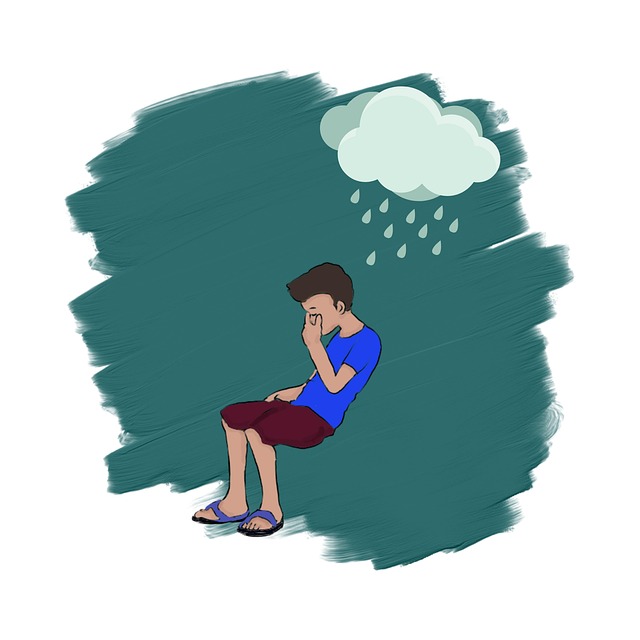Superior Sexual Abuse Survivor Therapy leverages Resourceful Family Mediation (RFM) techniques to transform lives, fostering understanding and healing among survivors through family involvement. This holistic approach builds resilience by teaching coping mechanisms, mindfulness, and positive thinking, emphasizing long-term emotional well-being. RFM's structured interventions, risk assessments, and creative therapies empower individuals to adapt, recover, and thrive post-abuse, with ongoing support for sustained progress.
In the realm of superior sexual abuse survivor therapy, Resilient Factor Model (RFM) exercises have emerged as potent tools for fostering resilience. This article delves into the significance of RFM in addressing survivors’ needs, offering a comprehensive guide to implementing effective resistance and coping strategies. We explore how tailored techniques can revolutionize therapeutic settings, ensuring long-term support for survivors navigating their journey towards healing. By integrating these practices, therapists can empower clients to overcome challenges and build lasting resilience.
- Understanding RFM and its Significance in Survivor Therapy
- Identifying the Need for Resilience-Building Exercises
- Designing Effective Resistance and Coping Strategies
- Implementing RFM Techniques in a Therapeutic Setting
- Measuring Success and Long-Term Support for Survivors
Understanding RFM and its Significance in Survivor Therapy

In the realm of survivor therapy, particularly for those who have experienced sexual abuse, Resourceful Family Mediation (RFM) stands out as a powerful tool for resilience building. RFM goes beyond traditional therapy by involving family members in a collaborative process aimed at fostering understanding, healing, and empowerment. This approach is crucial in addressing the complex emotional needs of survivors, helping them navigate their traumatic experiences and promote self-awareness exercises that are essential for depression prevention.
By incorporating RFM into superior sexual abuse survivor therapy, therapists enable clients to explore dynamics within their families, uncover hidden strengths, and develop effective coping mechanisms. The goal is not only to treat symptoms but also to equip individuals with emotional well-being promotion techniques that will serve them throughout their lives. This holistic approach recognizes the interconnectedness of family systems and their profound impact on an individual’s healing journey.
Identifying the Need for Resilience-Building Exercises

In today’s fast-paced and often unpredictable world, resilience is a valuable asset for individuals navigating various life challenges. This is especially true for those who have experienced traumatic events, such as sexual abuse, which can significantly impact their mental health and well-being. Superior Sexual Abuse Survivor Therapy recognizes the profound need for resilience-building exercises tailored to help survivors heal and thrive. These exercises go beyond traditional therapy methods, focusing on empowering individuals to cope with adversity, rebuild their sense of self, and enhance overall mental wellness.
Resilience building is not just a one-time fix; it’s an ongoing process that contributes to long-term self-esteem improvement. Through carefully designed activities and coaching programs, survivors can develop the tools necessary to face life’s obstacles head-on. This includes learning effective coping mechanisms, cultivating positive thinking patterns, and fostering a growth mindset—all of which are crucial components in the development of mental wellness coaching programs. By investing time and effort into these resilience-building exercises, individuals take significant steps towards leading more fulfilling and balanced lives.
Designing Effective Resistance and Coping Strategies

Designing Effective Resistance and Coping Strategies is a critical step in implementing RFM exercises, especially for those who have experienced sexual abuse. Superior Sexual Abuse Survivor Therapy involves tailoring interventions to meet the unique needs of survivors, focusing on building resilience and coping skills. This process requires a thorough understanding of the individual’s history and current challenges. Mental health professionals should conduct comprehensive risk assessments to identify potential triggers and vulnerabilities, ensuring safe and supportive therapy environments.
Coping Skills Development is enhanced through creative strategies such as mindfulness exercises, cognitive reframing techniques, and trauma-informed art therapy. These activities empower survivors with tools to navigate emotional distress, manage flashbacks, and regulate their responses to stressful stimuli. Public Awareness Campaigns Development can also play a significant role in normalizing these coping mechanisms, fostering community support for survivors, and encouraging early intervention.
Implementing RFM Techniques in a Therapeutic Setting

Implementing RFM (Resilience, Flexibility, and Mastery) techniques in a therapeutic setting offers a powerful approach to enhancing mental wellness among sexual abuse survivors. These strategies are designed to help individuals build resilience against trauma, fostering an environment where they can develop coping mechanisms that go beyond traditional therapy sessions. By integrating RFM into Superior Sexual Abuse Survivor Therapy, professionals can address the multifaceted needs of their clients.
This holistic method encourages patients to cultivate flexibility in their thinking and behavior, enabling them to adapt to challenging situations without succumbing to burnout. Moreover, it promotes social skills training, which is crucial for survivors navigating interpersonal relationships post-trauma. Through RFM exercises tailored to their unique experiences, survivors can regain a sense of control, enhance their overall resilience, and ultimately, embark on a journey of personal growth and recovery.
Measuring Success and Long-Term Support for Survivors

Measuring success in RFM implementation goes beyond immediate outcomes. It involves tracking improvements in survivors’ lives over time, focusing on enhanced emotional well-being promotion techniques and mental health awareness. By fostering a culture of resilience, these exercises aim to equip individuals with tools for navigating life’s challenges. Superior sexual abuse survivor therapy should not end after active treatment; rather, it should include long-term support mechanisms that incorporate mindfulness meditation as a powerful tool for stress reduction and emotional regulation.
Regular follow-ups, accessible resources, and supportive communities are vital components of this process. Through continuous assessment, therapists can identify areas where survivors may need additional assistance and adjust their therapeutic approaches accordingly. The goal is to ensure that individuals maintain the progress they’ve made in therapy and develop lasting coping mechanisms for a fulfilling life post-abuse.
Superior Sexual Abuse Survivor Therapy recognizes the profound impact of trauma on individuals’ lives. By integrating RFM (Resilience, Flexibility, and Mastery) principles and resilience-building exercises, therapists can empower survivors to develop coping mechanisms that enhance their overall well-being. This comprehensive approach, as outlined in this article, equips survivors with tools to navigate challenges, fostering a sense of agency and strength. Through structured techniques and ongoing support, survivors can achieve significant personal growth and rebuild their lives, ultimately breaking free from the cycle of trauma.










